Communications Ministry makes strides in Ghana’s digital transformational agenda
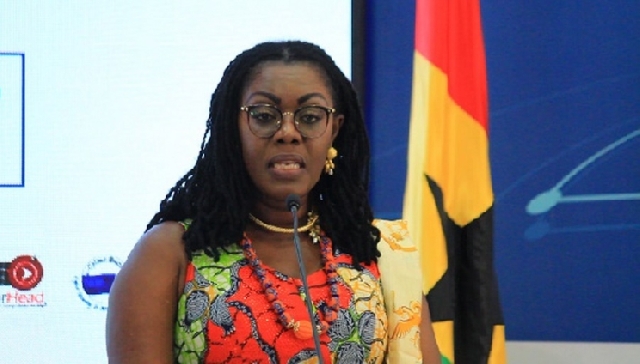 Ursula Owusu -Ekuful, communications minister
Ursula Owusu -Ekuful, communications minister
The Minister for Communications and Digitalisation (MoCD), Mrs Ursula Owusu-Ekuful (MP), has said that since 2017, the ministry, through its agencies, has undertaken key initiatives and implemented policies as part of government’s efforts to establish robust digital infrastructure to bridge the digital divide across the country and beyond.
Also recognising the importance of digitalisation as a cornerstone of economic development, she said the government had committed itself to a relentless pursuit of innovative Information and Communication Technologies (ICT) solutions which were in alignment with the overarching vision of realizing the Digital Ghana Agenda.
She made these remarks when she took her turn at a Minister’s Press Briefing (MPB), on Tuesday, 20 February 2024, at the Ministry of Information in Accra to update the public on some key policy initiatives the ministry had embarked on to achieve Ghana’s digital transformational agenda for national development.
The Ghana Rural Telephony and Digital Inclusion Project (GRT&DIP)
Speaking on the GRT&DIP project, she noted that, the ministry, through the Ghana Investment Fund for Electronic Communications (GIFEC), was driving the extension of mobile telephony services into all corners of the nation where access was either lacking or insufficient, and where network operators were reluctant to expand their services to because those areas were deemed not to be commercially viable.
She said upon assumption of office in 2017, this government intensified efforts to ensure comprehensive network coverage across the country in line with the Digital Ghana Agenda.
“Between 2017 and 2018, in collaboration with the private sector, 430 Rural Telephony Sites were built and activated. This concerted effort connected approximately 700,000 previously underserved and unserved Ghanaians in remote communities, helping to bridge the digital divide and foster inclusive development,” she noted.
She also disclosed that the government in 2020 secured a €155 million facility from the China EXIM Bank to start the Ghana Rural Telephony and Digital Inclusion Project in partnership with Huawei and China National Technical Import and Export Corporation (CNTIC).
“As at February 2024, 1,010 of the planned sites have been successfully constructed, with 618 of them already operational, offering essential Voice and Data services to citizens in about 1,620 rural communities who can now make calls and use data services, thereby enhancing social and economic activities in these communities. The Ministry will build the remaining 1,006 sites, integrate, and activate them all for voice and data services to ensure reliable, affordable, and secured broadband infrastructure this year,” she reiterated.
She indicated that the government introduced the National Roaming Service under the GRT&DIP which allows phones to automatically connect to a mobile network with the strongest signal available in any area, regardless of which operator one subscribes to. The initiative, she said, was not only expanded for access to telecommunications services but has also fostered greater inclusivity within the digital landscape.
According to her, the project impacted the lives and has facilitated remote learning, digital financial inclusion through mobile banking and mobile money, access to market information for farmers, and enabled small businesses to reach customers beyond their immediate vicinity, due to the availability of mobile Internet in these communities.
She revealed that Ghana had taken bold steps to implement the ECOWAS Free Roaming initiative adopted in 2016 but suffering implementation challenges. In June 2023, Ghana and Côte D'Ivoire became the first ECOWAS countries to implement the ECOWAS Free Roaming initiative to promote greater integration among member states and decrease roaming charges within the sub-region.
“This simply means that Ghanaian subscribers of any network, visiting Côte d'Ivoire, will receive calls without paying roaming charges and will be charged Côte d'Ivoire's local rates when making calls to Ghana while in Côte d'Ivoire, and vice versa. Subscribers traveling between both countries will also be exempt from international roaming charges,” she noted.
The Innovative Digital Services and Payments Platform, GHANA.GOV
Touching on some innovative digital services and payment platforms, she commented that e-services project by the previous government intended to revolutionise services delivery, faced several challenges that made it largely nonfunctional.
To, therefore, address the challenges, Mrs Owusu-Ekuful said the Akufo-Addo/Bawumia government took a different approach to government online service delivery by adopting a sustainable and cost effective approach.
“The government discontinued the Ghana E-Services Payment Platform (GEPP) and entered into a partnership with a consortium of three local technology firms (Hubtel, expressPay and IT Consortium) to design, develop, deploy, and manage a one-stop-shop online services platform with an integrated payment gateway for the Government of Ghana, known as Ghana.gov. The consortium financed the development, deployment and management of the entire project. Now this platform serves as a shared central point for all government online revenue collection, enabling citizens and businesses to discover, consume, and pay for government services online seamlessly,” she explained.
The Revolutionary Nationwide E Government Network
Mrs Owusu-Ekuful mentioned that, in September 2021, the Communications Ministry issued a tender to build an eGovernment Network Connectivity Infrastructure (eGovNet) under a 10-year contract. “We have built a next generation, future-ready infrastructure – Digital Super information Gateway (DSIG 100x) that facilitates good governance, connectivity and performance”.
She said the DSIG 100x was designed to deliver all the applications and services required by the government of Ghana on a backbone of 100 Gbps. It provides a strong digital infrastructural foundation on which government digital services that brings convenience, speed, reliability, transparency and accountability, supports revenue mobilization, enhances security operations and empowers local government to work efficiently across the country, were anchored.
The key components of the DSIG 100x include:
A new modernised and robust core infrastructure was built to serve as the foundation of this GOVNET. This core infrastructure is equipped with industry best equipment which offers capacity and advanced functionality for 4G, 5G and beyond, nationwide, to setup a shared neutral wireless access network. This will propel Ghana into new age services and become a platform for the Fourth Industrial revolution.
High capacity 100 Gbps-ready Internet connectivity between National Data Centres in Accra and Kumasi
500km of new built last mile fibre connecting over 200 agencies to the main backbone network.
Over 5000km of fibre has been provided to support the foundation of this government infrastructure with over 3000kms being newly built fibre.
900 high speed microwave links have been deployed to these agencies to ensure reliable and uninterrupted connectivity to the agencies,
Satellite services (800 VSAT terminals) from one of world’s leading providers have been deployed as backup to the primary fibre and high-speed microwave links.
A fully redundant mesh core network which is expandable up to 100 Gbps capacity.
Next generation IP Core architecture and Overlay of SD-WAN (Software Defined Wide Area Network) technology to deliver seamless and secure services.
A state-of-the-art network operations center.
Accelerated last mile connectivity through P2P radios to support 50 – 10 Mbps throughput and fibre
High Availability Network for seamless and uninterrupted delivery of services and applications
Source: Classfmonline.com/Cecil Mensah
Trending News
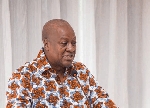
Profiles of 10 regional ministers-designate nominated by President Mahama
23:13
NDC exposes three police officers allegedly involved in looting of state establishments
13:44
NALAG President urges President Mahama to prioritise experienced Assembly Members and women in MMDCE appointments
00:48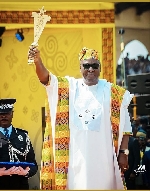
Eastern Youth Development Association congratulates President Mahama
11:39
Justina Nelson: President Mahama appoints Acting CEO for Minerals Income & Investment Fund
21:53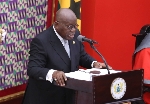
Don’t be scared; we won’t default on our debt obligations – Ato Forson to Akufo-Addo
11:43
NIA assures 500 contract staff of settling salary arrears
12:18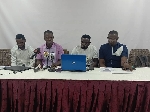
CARE Ghana raises concerns over 2024 election security lapses
12:01
V/R: President John Dramani Mahama nominates James Gunu as regional minister-designate
21:43
Dialysis Center at Upper East Regional Hospital faces possible shutdown over funding challenges
12:23



